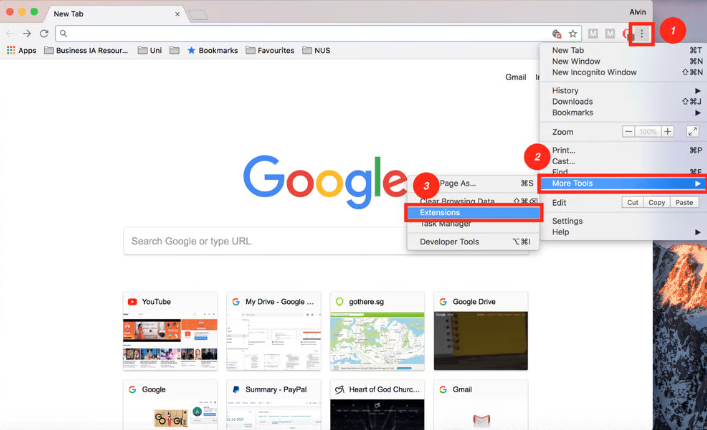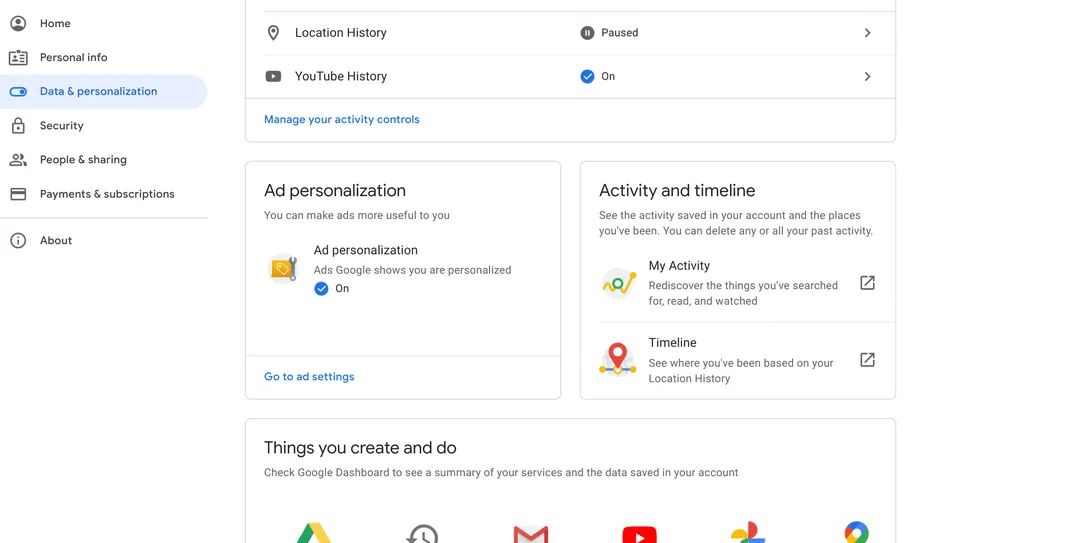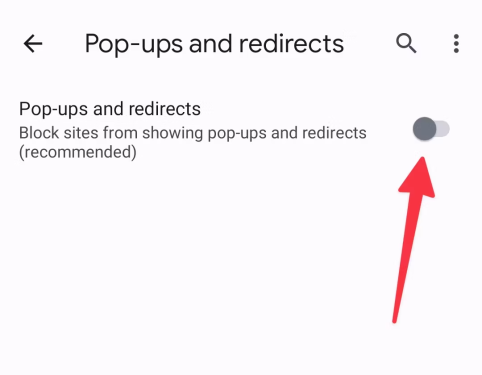Guide on How to Block Google Ads

A Guide on How to Block Google Ads
Today’s digital landscape is saturated with advertisements. They emerge in our web browsing experience, consistently bombarding us with promises of the next big thing or a better life. Indeed, Internet users spend a significant portion of their online time evading pop-ups, banner ads, and relentless retargeting tactics. Particularly, Google Ads, with its extensive reach and sophistication, often appears to be omniscient and unstoppable.
Yet, contrary to popular belief, there are practical ways to guard yourself against these unwanted Google promotions. This comprehensive guide will shed light on how to effectively screen Google Ads, providing you with a less distracted and more productive online presence.
The focal point of the discourse will revolve around integrating ad-blocking software, adjusting your browser settings, fine-tuning Google account ad preference, and using private modes for browsing. The primary intention behind these methodologies is to grant you an ad-free or, at least, ad-reduced browsing experience. Do note that while Google Ads can at times be intrusive, they also support many online services and websites. Hence, you must use these strategies judiciously, supporting those online platforms that respect your digital space and privacy.
So, if the incessant digital nudging by Google’s advertising has been disrupting your online journey, it’s time to reclaim your browsing experience.
Deciphering Google’s Advertising System
With Google ads, businesses can capture their target audience, showcasing their products or services to those who are likely to become customers. The effectiveness of an ad campaign depends greatly on the company’s understanding of Google Advertising, since a more comprehensive knowledge can help you to better strategise your ad campaigns.
Methods and Strategies
Google Ads utilizes a pay-per-click (PPC) system, which means you are charged each time a user clicks on your ad. The cost of your ads on Google depends on keywords and bidding strategy you’ve set. By customizing these settings, you can tailor your ads to reach your exact audience.
- Keyword Planner- This tool helps you to discover new, related keywords, see how they might perform, and choose competitive bids and budgets.
- Conversion Tracking- It’s a handy tool to track the user’s action after they click your ads like whether they purchased your product or signed up for your newsletter.
- Ad Extensions- These are extra pieces of information about your business, like a phone number or a link to a specific page on your website, you can add to your ads.
In summary, understanding how Google Ads works can help to showcase your business to a wider audience, maintain a constant stream of traffic, and ultimately, generate profit. However, if mishandled, it may also lead to unnecessary expenditures. Therefore, it is necessary to comprehend the workings of Google Ads for a successful online advertising campaign.
| Aspect | Description | Steps Involved |
|---|---|---|
| Browser Settings | Adjust browser settings to block ads while browsing the web. | In your browser, configure settings to block ads. |
| Use Ad Blockers | Install ad-blocking browser extensions or apps to block ads system-wide. | Install ad-blocker extensions or apps on your device. |
| Ad Personalization | Modify Google account settings to limit ad personalization. | Adjust ad personalization settings in your Google account. |
| Ad ID Settings | Opt out of personalized ads through Ad ID settings. | Change settings related to your advertising ID. |
| Use Premium Apps | Utilize paid versions of apps to eliminate ads within specific apps. | Upgrade to premium versions of apps to remove ads. |
| Third-Party Tools | Disconnect third-party tools and services connected to your Google account that may display ads. | Review and remove connections to external services. |
| Ad Feedback | Provide feedback to Google about specific ads you find intrusive or irrelevant. | Use the “AdChoices” feature to provide feedback. |
| Modify DNS Settings | Change DNS settings on your router or device to block ads at the network level. | Configure DNS settings to filter out ad domains. |
| Parental Control Apps | Use parental control apps to block ads on devices used by children. | Install parental control apps with ad-blocking features. |
| Firewall Rules | Create firewall rules to block ad-serving domains at the network level. | Configure firewall rules to block ad domains. |
| Hosts File Editing | Manually edit the hosts file on your device to block specific ad domains. | Edit the hosts file to redirect ad domains. |
| Browser Plugins | Use browser plugins designed to block ads and enhance privacy. | Install privacy-focused browser plugins. |
| VPN Services | Subscribe to VPN services with built-in ad-blocking features. | Use VPN services that offer ad-blocking capabilities. |
| Educate About Ads | Educate yourself and others about recognizing and avoiding misleading or harmful ads. | Stay informed about ad-related scams and practices. |
Understanding the Reasons behind Blocking Ads on Google
Advertisements are considered as an essential aspect of the modern digital environment. However, these can sometimes outdo their purpose and end up becoming irks, especially when they interfere with user experience. It is at this point that individuals opt to put a stop to these promotional broadcasts, especially those served by widely used platforms like Google.
The rationale of putting the blocks on such ads varies from person to person. While some see it as a means of gaining control over their online space, others do it for more specific reasons. Let’s delve deeper into the explanation behind why many users are going for this alternative.
The Motivation behind Blocking Google-sourced Advertisements
Privacy Concerns: Some users oppose these ads as they feel that their activity online is constantly under surveillance. This arises due to tailored ads that are indicative of data tracking. Taking a step to halt these ads provides users with a perceived semblance of privacy.
Preventing Distractions: Advertisements often serve as distractions during online activities. Especially the ones that pop up abruptly or placed in the middle of a text. They interrupt the train of thought of a user, causing dissatisfaction. Blocking these ads ensures a more streamlined online experience.
Minimizing Data Usage: Internet ads utilize a lot more data than standard text. Blocking them can result in significant data savings, especially for those with limited data plans or slow internet speeds.
Protection from Malware: It’s not uncommon for online advertisements to be used as a vehicle to spread malware. Blocking these ads is one way users can protect their devices from harmful software.
Thus, while internet advertisements serve as a beneficial tool for businesses, they can sometimes create dismay among users. Ad-blockers help individuals to navigate the world wide web in a more personalized and secure manner.
Encountering Various Forms of Google Advertisements
When navigating the digital landscape, it’s hard to miss the wide array of advertisements displayed by Google. These come in several varieties, each designed to reach audiences in different contexts and platforms. Whether you’re researching a topic, watching a video, or using an application on your phone, chances are you’ll encounter Google Ads.
This form of digital marketing is highly effective and thus, very prevalent. Its sheer diversity in terms of style, content, and delivery method is remarkably extensive. Here are some common types of Google Ads you might come across during your online journeys.
Google Ad Categories
- Search Network Ads: These advertisements are typically text-based and are displayed on Google’s result pages. They’re directly related to the keyword entered by the user.
- Display Network Ads: These ads can be seen in several formats – banners, images, or text, across a variety of websites and apps. They’re aimed at users based on their interests or previous online activities.
- Shopping Ads: These are product-based advertisements that appear on Google’s search results. They include a product picture, price, and retailer information.
- Video Ads: These are promotional clips that play before, during, or after a video on YouTube or Google Display Network.
- App Ads: These are advertisements targeted at promoting mobile apps and appear in the Google Play Store, Google Display Network, or within other apps.
In each case, the advertisements are designed to be relevant and engaging while blending in naturally within the online environment. They seamlessly integrate with the user experience, attempting to entice clicks and conversions.
Despite its benefits to businesses, some users may find the constant stream of digital advertising intrusive. For them, understanding how to neutralize Google ads can be a useful skill. It’s all about achieving the right balance between consumer comfort and effective marketing.
Google, a leading tech giant, has grown and expanded its services beyond its initial search engine functionality. Part of its widespread ecosystem includes a well-integrated advertising platform known as “Google Ads”. While these ads considerably sustain the cost of the myriad of free services Google offers, they significantly shape how we experience the internet.
There is more to these ubiquitous digital advertisements than meets the eye. Google’s commercial messages spark noteworthy questions about privacy, user experience, and modification of web content consumption habits. Lets delve deeper into this subject.
The Effect on User Privacy and Internet Usage
Primarily, the presence of Google’s promotional content on the websites you visit is often customized to match your perceived interests. The search engine giant uses highly sophisticated algorithms to analyze individual’s browsing history and behaviors. Consequently, it can predict and present you with content you’re most likely to engage with.
- Personalized Advertisements: It’s not uncommon to find that after exploring a particular product or service on Google, you start to see related ads on various webpages. This targeting advertising technique is both interesting and somewhat intrusive as it leverages your personal data.
- Altered User Experience: Google Ads disrupt the uniformity of content presentation across websites. While the main content of a site may carry a certain theme or message, the appearance of unrelated Google ads can distract and detract from the actual content of the site.
- Sluggish Loading Times: In some cases, these ads can also affect your browsing speed. They require additional data to load, which might slow down the overall loading time of a webpage, especially on weak or limited internet connections, affecting the efficiency of your internet browsing.
Inevitably, Google Ads have become an integral part of our internet browsing experience. How they affect that experience depends largely on individual browsing habits, personal tolerance of targeted advertising, and overall concern for privacy.
An Easy Guide to Avoiding Google Adverts on Your Computer
Internet browsing is considerably interrupted through constant pop-ups and interruptions from Google Ads. There is a significant need to navigate the web in peace, without the constant influx of promotional content. Fortunately, for users utilizing desktops, there are straightforward methods to eliminate Google Ads.
It is crucial to remember that even though ads can be frustrating sometimes, they are essential to most web content creators as a method of revenue. Still, excessive advertising can be annoying, hence the need to prevent Google ads.
Steps to Removing Advertising on your PC
For PC users, there are a couple of procedures that you can implement to prevent Google’s dismayingly intrusive adverts. These steps are pretty direct and don’t require having an extensive knowledge of technology.
- Using an Ad Blocking Extension: An Adblock extension is a gradual and effective way to disable Google ads. Examples of these extensions are AdBlock or AdGuard.
After installing the extensions on your browser, it will automatically block all ads. Please note that you have the option to whitelist certain sites if needed.
- Change Google Account Settings: One can deliberate changes from their Google account to prevent personalised ads. This is done by switching to the “off” position at the option “Ads personalisation”. However, this method will not eradicate all ads but will stop ads targeted based on your preferences and browsing history.
- Bidding Farewell to Pop-ups: The browser settings can be altered to block pop-ups. For instance, in Chrome, on your browser setting, navigate to the privacy and security options, click on “Site Settings” and disable “Pop-ups and Redirects”.
These strategies are user-friendly, and if followed correctly, can significantly minimize the occurrences of Google advertising. However, bear in mind that some sites demand that you either disable your adblock or pay a premium to view ad-free content. Always ensure to whitelist these sites.
Instructions to Disable Advertisements from Google on Mobile Devices
Are you tired of the relentless onslaught of online advertising while browsing on your phone? Fortunately, there is a way to ward off unwanted Google advertisements on your handheld devices. Here is a well-detailed, step-by-step process to help you in achieving this.
Before diving into the steps, it’s crucial to understand that the steps might vary slightly based on the model of your device, and the browser you’re using. However, they mostly follow the same basic premise.
A Stepwise Guide to Stop Google Advertisements on your Handheld Device
Step 1: Open ‘Google Settings’ on your device
On your phone, search for ‘Google Settings’. This might be in your main settings menu, or it might be an entirely separate app depending on the phone model.
Step 2: Discover the ‘Ads’ option
Scour the settings until you find an ‘Ads’ option. This is where you can tailor Google’s advertising settings.
Step 3: Empower the ‘Opt out of Ads Personalization’
Simply click or tap on the ‘Opt out of Ads Personalization’ or similar. Now, Google will stop tailoring ads based on your activity. However, this doesn’t mean you won’t see ads, but they won’t be based on your personal data.
Step 4: Confirm your changes
You may be prompted to confirm your changes. Simply proceed by choosing ‘OK’ or ‘Yes’ in this situation
Note: For some browsers, you might have to venture into the settings of the specific browser and find an option that dwindles or eliminates ads. For example, in chrome, you can deactivate ‘Pop-ups and redirects’
Following this process would enable you to prevent Google from showing personalized ads.
Reflecting on Disabling Google Advertisements
Deliberating on measures to inhibit Google promotions requires significant contemplation. As you consider ways to block these advertisements, remember that several aspects should not be overlooked. The practice, although seemingly harmless, might entail ramifications that could significantly affect your visitation to various websites. Thus, it is essential to weigh the pros and cons before reacting excessively to repetitive or bothersome ads.
Recognizing the role of Google advertisements in the digital field is the first step before deciding to block them. Google ads, often tailored according to your web history, enable an individualized browsing experience. They also facilitate revenue generation for many websites and content creators who rely on ad impressions or clicks for funding.
Critical Aspects to Ponder Before Restricting Google Ads
- Economic Implications: Put it in mind that many online platforms survive on the income generated from Google advertisements. Totally hindering them might affect your favorite sites and their capacity to deliver quality content.
- User Experience: Though some ads might be disturbing, they often cater to your browsing history and preferences. This personalization enhances your online journey by suggesting websites and products that align with your interests.
- Content Accessibility: Certain websites restrict access to their content or services for users who employ ad blocking technologies. Therefore, discontinuing Google ads might make some online resources unavailable to you.
- Technical Considerations: Finally, be aware that the ad blocking process might require technical skill or special software. Non-tech savvy users might encounter difficulties when trying to set-up or troubleshoot these tools.
To sum up, it is crucial to reflect on these considerations before taking measures to prohibit Google advertisements. Blocking Google ads might seem enticing at first glance, but its potential implications necessitate careful thought and balanced decision-making. Remember, a well-informed choice is always the best approach.
FAQ: How to Block Google Ads in Google Chrome and Other Browsers
How to block ads by Google on your desktop browser?
To block ads by Google on your desktop browser, you can use a variety of ad-blocking extensions. First, search for a trusted ad blocker like AdBlock or uBlock Origin and install it. These extensions can automatically block ads by Google and other ad networks. Additionally, adjusting your browser’s settings can help reduce pop-ups, though using an ad blocker is the most efficient way to block ads by Google permanently.
How to block ads by Google on Android devices?
If you’re wondering how to block ads by Google on Android, there are a few options. You can install an ad-blocking browser, such as Brave, which is designed to block ads by Google and others by default. Alternatively, apps like AdGuard allow you to block ads by Google across different apps and browsers on your device.
What factors should I consider before blocking Google Ads?
You should think about the potential loss of revenue as the primary consideration. More factors include block’s influence on user experience, relevance of Ads to your content and audience, potential impact on SEO, and the understanding of why certain ads are showing up in the first place.
Will blocking Google Ads on my site improve the user experience?
Blocking Google Ads may improve the user experience if visitors find them distracting or irrelevant. However, it could also potentially decrease the revenue you generate from your site if you rely on these ads for income.
How does blocking Google Ads impact SEO?
Blocking Google Ads itself does not directly affect SEO. Google’s search algorithm and Google Ads are separate entities. However, if your ads are intrusive and disturb the user experience, removing them might reduce the bounce rate, leading to an indirect positive impact on your SEO.
Why do irrelevant ads show up on my website?
Irrelevant ads might be showing up because of Google’s automated systems. These systems try to match ads with the content on the site and the users’ interests. If you’re seeing irrelevant ads, you may want to check and adjust your site’s ad settings, or contact Google Ad support.
Which Google Ads could I consider blocking?
You can consider blocking Ads that are irrelevant to your content or audience, ads from your competitors that show up on your site, or ads that you or your users might consider inappropriate or annoying. Remember to consider the impact on your revenue before deciding to block any ads.
What are the implications of blocking Google ads on my website?
Blocking Google Ads may potentially impact your revenue as ads generate a significant portion of income for many websites. Additionally, your site visitors may miss out on personalized ads, which could potentially lead to decreased user engagement. You should also bear in mind that Google uses sophisticated technology to ensure that ads are safe, unobtrusive, and as relevant as possible.
What should I consider before blocking Google Ads?
Before blocking Google Ads, you should consider whether the ads are relevant to your content or audience. If not, they may disrupt user experience. You should also consider your revenue streams. If you depend heavily on ad revenue, blocking Google Ads might significantly impact your income. Lastly, think about your website’s performance. While ads can slow down page loading times, Google is consistently working to minimize this impact.
Are there any alternatives to blocking Google Ads?
Yes, there are alternatives to simply blocking Google Ads. You can use Google’s ad review center to gain control over the ads displayed on your site. This tool allows you to review individual ads, ad categories, and ad networks, and to allow or block them as you deem fit. Remember that it’s important to balance ad control with the potential impact on revenue.
How can I turn off ads on my web browser?
You can turn off ads on your web browser by using ad-blocking browser extensions or apps. These extensions allow you to block ads while browsing.
Is there a way to hide ads on websites like YouTube?
Yes, you can hide ads on websites like YouTube by using ad-blocking extensions or apps. They prevent ads from displaying while you watch videos.
What are some common methods to block YouTube ads?
To block YouTube ads, you can use browser extensions like AdBlock or dedicated YouTube ad blockers. These tools skip or remove video ads before or during playback.
How do targeted ads work, and can I disable them?
Targeted ads are personalized based on your online behavior and interests. You can often disable them by adjusting ad settings in your web browser or Google account.
Can you recommend the best ad blockers for web browsers?
Some popular ad blockers for web browsers include AdBlock Plus, uBlock Origin, and AdGuard. These extensions are available for various browsers and help block intrusive ads.
How can I prevent unskippable ads on websites?
To prevent unskippable ads on websites, you can use ad-skipping browser extensions. These tools allow you to skip or close unskippable ads.
Are there ad-blocking solutions for Android apps?
Yes, there are ad-blocking apps available for Android devices. You can install these apps to block ads in various Android apps and games.
What should I do if I encounter intrusive ads while browsing?
If you encounter intrusive ads while browsing, consider using ad-blocking browser extensions or apps. These tools can help eliminate intrusive or disruptive ads.
How do I manage ad settings in Mozilla Firefox?
In Mozilla Firefox, you can manage ad settings by going to the browser’s settings menu. Look for “Privacy & Security” or a similar option, where you can configure tracking preferences and disable certain types of ads.
Can I hide my search history to avoid targeted ads?
Yes, you can use private browsing modes or incognito windows in web browsers to prevent the storage of your search history, which may reduce the impact of targeted ads.
What’s the difference between built-in ad blockers and browser extensions like Adblock Plus?
Built-in ad blockers are integrated into some web browsers (e.g., Brave), while browser extensions like Adblock Plus are third-party tools that you can add to your browser. Both aim to block ads, but some may prefer using extensions for more customization options.
How can I block pop-up ads in my web browser?
You can block pop-up ads in your web browser by enabling the built-in pop-up blocker or using browser extensions designed to block pop-ups. Most modern browsers have pop-up blocking features.
© PhoenixProject, with full or partial copying of the material, a link to the source is required.

 After installing the extensions on your browser, it will automatically block all ads. Please note that you have the option to whitelist certain sites if needed.
After installing the extensions on your browser, it will automatically block all ads. Please note that you have the option to whitelist certain sites if needed.



Comments: 0